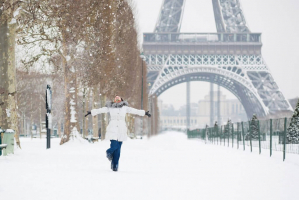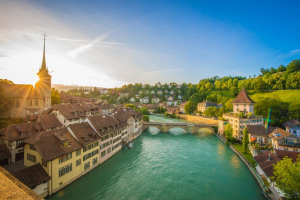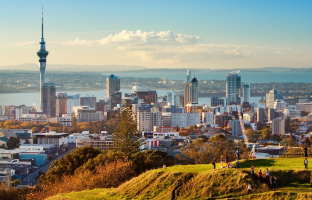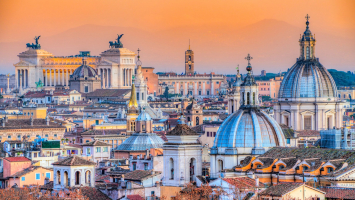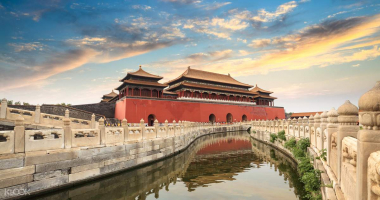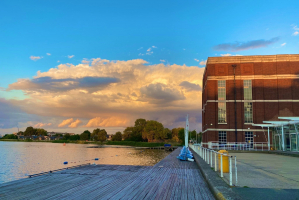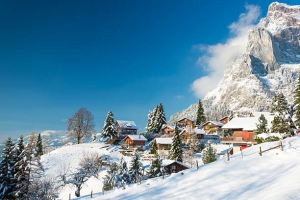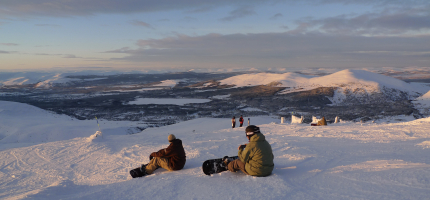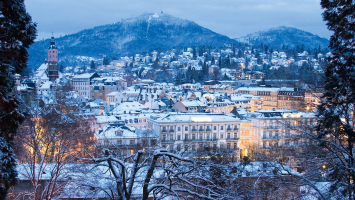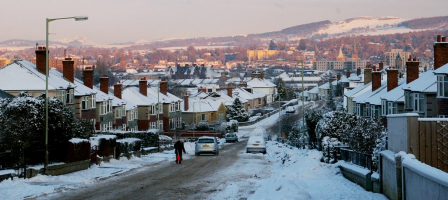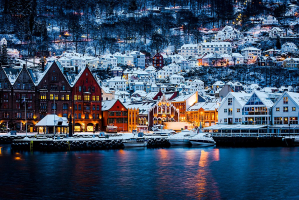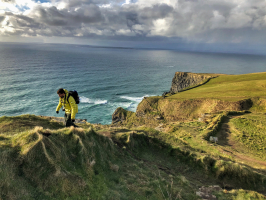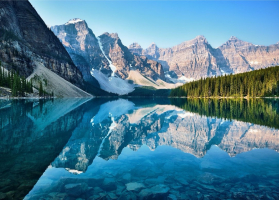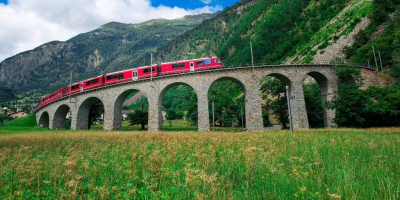Top 10 Warmest Places in Winter for Travelers in Canada
The majority of people associate Canada's winter with one thing: cold. This list is for you if you're traveling in Canada during the winter but would rather ... read more...stay in regions with mild winter. Not only are these locations warm, but they are also beautiful towns and cities where visitors will want to stay for a while, even the entire winter. With this list of the warmest spots in Canada in winter, you may discover the ideal destinations to visit during this chilly time.
-
British Columbia's capital, Victoria, holds the distinction of being the warmest city in the country. With an average daily high temperature of 7.6 degrees Celsius (45.7 degrees Fahrenheit) and an average daily low temperature of 1.5 degrees Celsius (34.7 degrees Fahrenheit), it has the highest average temperatures in the entire country in January.
The wonderfully warm winters make it pleasant to enjoy a stroll outside year-round, which is one of the reasons so many people decide to retire to Victoria and other lovely areas on Vancouver Island. In the winter, Victoria offers a variety of activities; even the well-known Butchart Gardens are open (although you'll have to head to their indoor gardens to see flowers in bloom). Winter activities like ice skating, Christmas light tours, and a warm cup of tea are still available in Victoria. The distinction is that you can easily engage in these activities without losing feeling in your fingers and toes.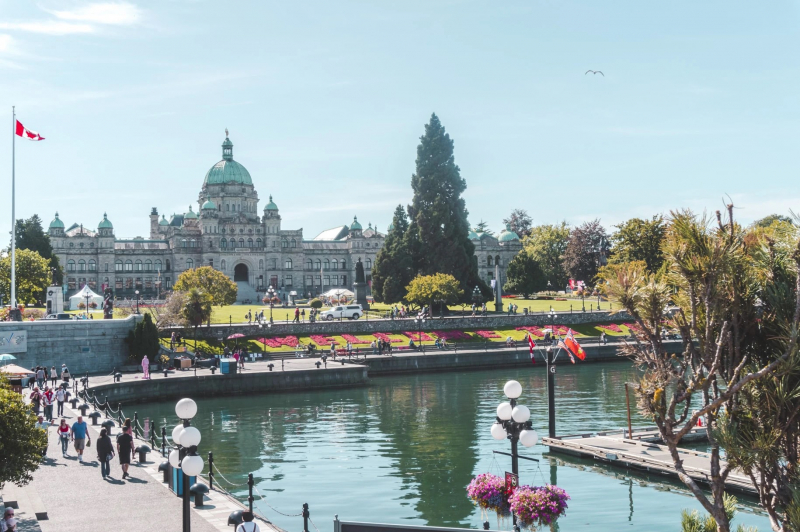
Victoria, British Columbia 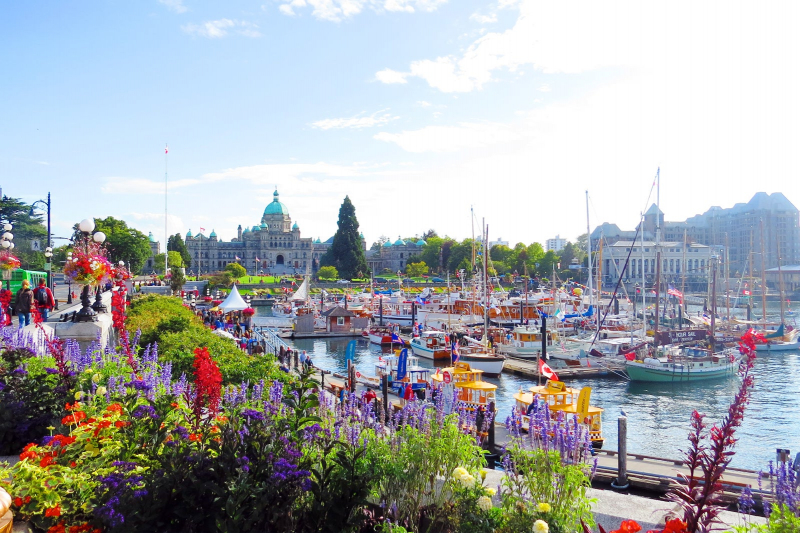
Victoria, British Columbia -
When the rest of the nation is zipping up their winter parkas and scraping the frost off their windshields, Vancouverites can be found strolling casually along the Sea Wall, eating lunch on a sunny patio, or even playing a round of golf (seriously - there are golf courses that are open year-round).
In January, Vancouver has daily highs of 6.9 degrees Celsius (44 degrees Fahrenheit) and lows of 1.4 degrees Celsius (34.5 degrees Fahrenheit). Although it's not in Florida or Hawaii, the weather is warm enough to make being outside enjoyable. Additionally, it's not unusual for Vancouver people to enjoy a few extra warm and sunny days in the middle of winter; it's like getting a bonus sneak peek of spring. While snow is unlikely to fall in Vancouver at any time of year, the chances are good that you'll see some of that infamous Vancouver rain if you go there in the winter. If it starts to rain, bring an umbrella or a raincoat, but don't let that stop you from seeing the city.
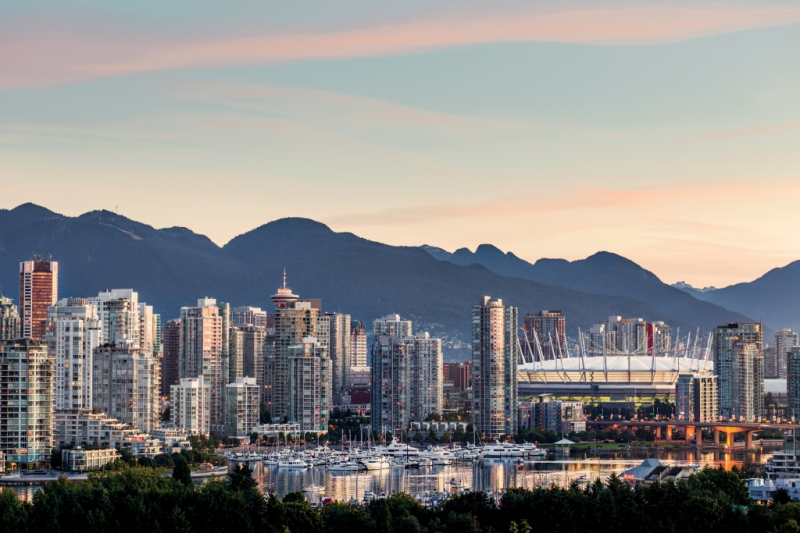
Vancouver, British Columbia 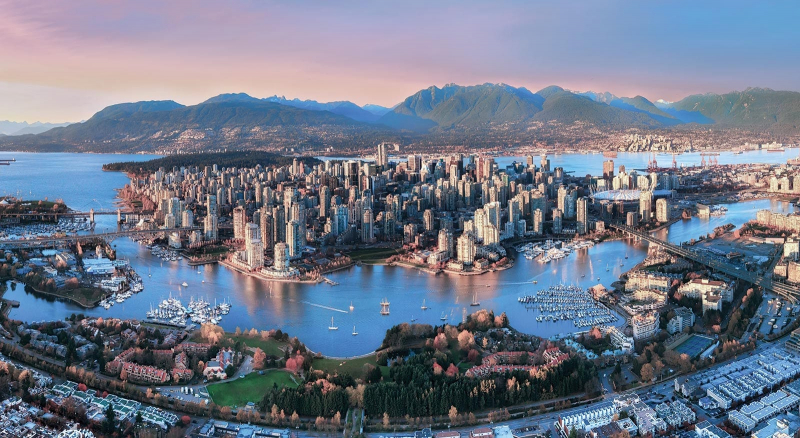
Vancouver, British Columbia -
The attractive city of St. Catharines, which is located in Ontario's Niagara Region, benefits from being close to Lakes Ontario and Erie as well as from the shelter the Niagara Escarpment provides. As a result, the city experiences a warm microclimate even in the winter.
St. Catharines is warmer than other places in Ontario, but the city is still rather chilly in the dead of winter. Although temperatures are mild early and late in the season, the average daily high in November is 8.4 degrees Celsius (47.1 degrees Fahrenheit), and the average daily high in March is 7.4 degrees Celsius (45.3 degrees Fahrenheit), which is pretty warm. It has many popular attractions, including Lakeside Park Beach, St. Catharines Museum and Welland Canals Centre at Lock 3, Salem Chapel British Methodist Episcopal Church, making it well worth a visit.
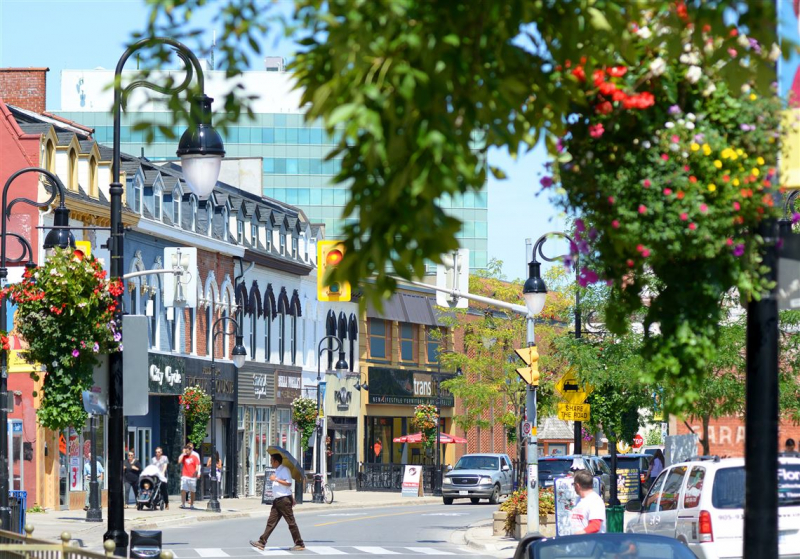
St. Catharines, Ontario 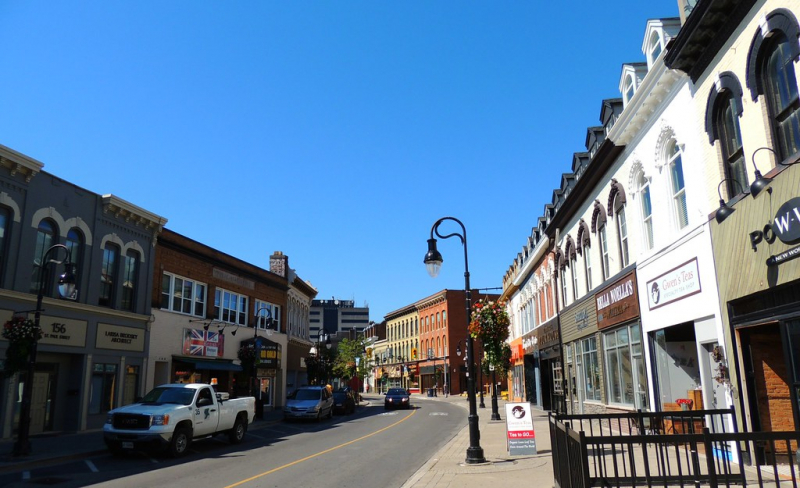
St. Catharines, Ontario -
The largest city in the Okanagan Valley of British Columbia, Kelowna, offers all the amenities of a large metropolis. The city of Kelowna is about 150 kilometers (90 miles) from the US border and is easy to reach by air, bus, and car via Highway 1, 3, or 5.
Although the city is known as a summer vacation spot, locals know that Kelowna also has a pleasant winter climate. It's a great idea to check out Kelowna if you want to get away from the cold but would rather avoid the rain. The lake is ideal for almost any kind of water sport you can think of, and the hot weather makes this a favorite summertime holiday destination. There are a ton of reasons to travel to Kelowna and the Okanagan region in the winter. Some of these reasons include winter hiking, a day at the spa, or a meal at a renowned restaurant.
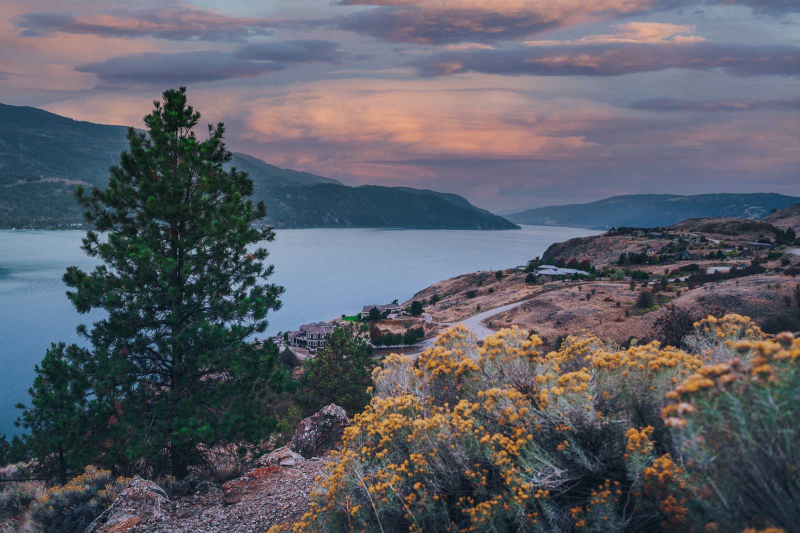
Kelowna, British Columbia 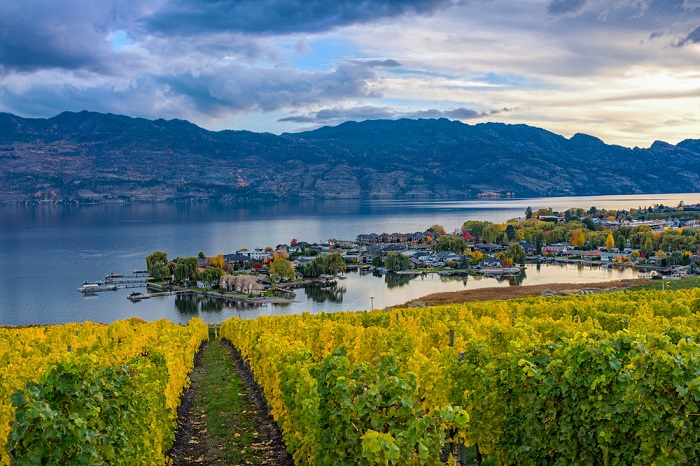
Kelowna, British Columbia -
Halifax, the capital of Nova Scotia, is the warmest city to visit if you've got your heart set on traveling to Canada's beautiful East Coast in the winter. Halifax, which is located on the Atlantic coast, has milder winters than the province's inland cities and towns.
Be aware that you'll probably see quite an amount of snow in Halifax if you visit during the winter. There are numerous ways to take advantage of the white fluffy stuff, including cross-country skiing, snowshoeing, and sledding down Citadel Hill. You can learn more about Nova Scotia's lengthy history while staying warm at the Canadian Museum of Immigration or the Maritime Museum of the Atlantic. To learn more about culture, go to the Art Gallery of Nova Scotia. Visit the Discovery Centre if you want to learn more about the universe or the study of science. All of Halifax's attractions are significantly less crowded in the winter than they are during the busy summer travel season, which is an extra advantage of going then.
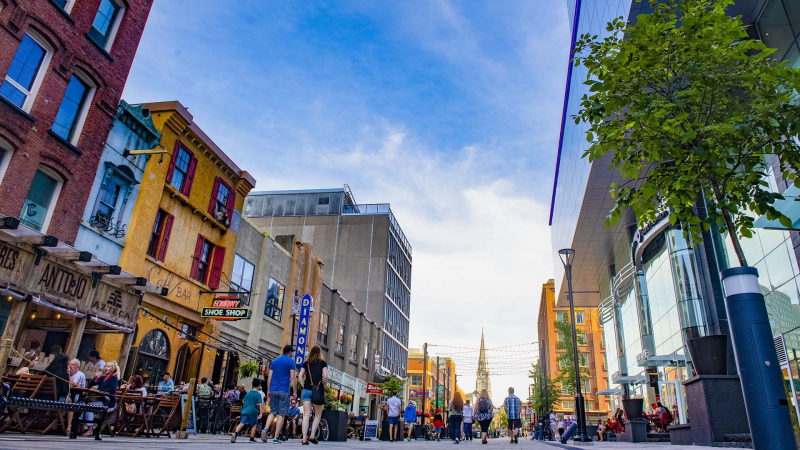
Halifax, Nova Scotia 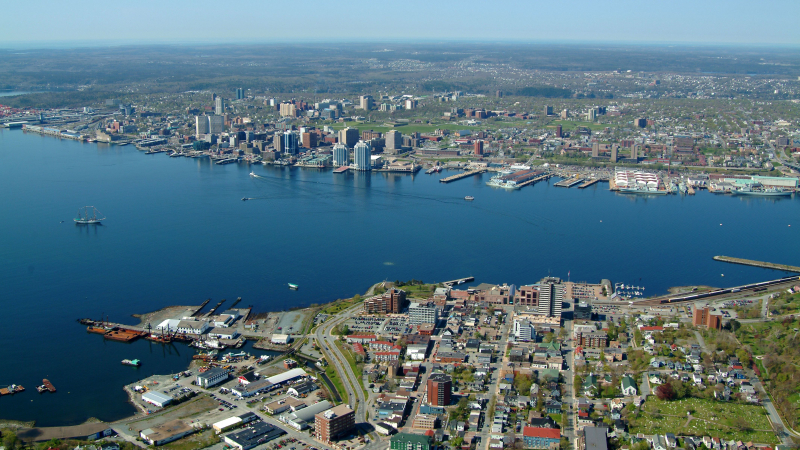
Halifax, Nova Scotia -
You are well-acquainted with Victoria, one of the most popular tourist spots in Canada, but are you familiar with Courtenay? This smaller city (population: about 26,000) is situated higher up on the east coast of Vancouver Island and is hailed by many as the island's hidden gem.
The city of Courtenay benefits from mild winters; the average daily high temperature in January is 6.4 degrees Celsius (43.5 degrees Fahrenheit), and the average daily low temperature is 1.4 degrees Celsius (34.5 degrees Fahrenheit). One benefit of winter in Courtenay is the nearby Mount Washington, where you can engage in traditional Canadian winter sports including snowboarding, cross-country skiing, and downhill skiing. When you've satisfied your craving for winter, you can escape the snow and head back to Courtenay, where you may play some golf or shop at the indoor winter farmers market.,
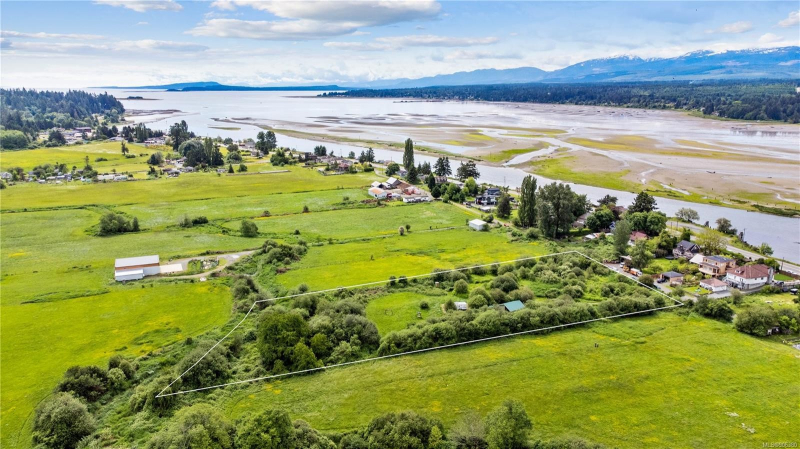
Courtenay, British Columbia 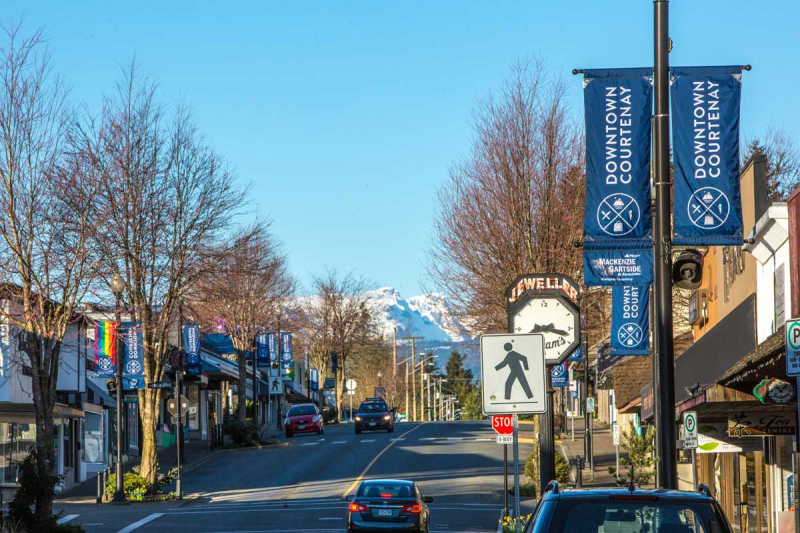
Courtenay, British Columbia -
Sunshine Coast is one of the most popular parts of southern British Columbia. It is home to many delightful and cozy seaside communities with adorable shops, laid-back cafés, and restaurants with breathtaking views. The Sunshine Coast is only reachable by ferry.
With the exception of the mountains of snow, the communities on the Sunshine Coast are similar to those in a Hallmark Christmas movie. Although there isn't much snow in the area in the winter because the temperatures are still warm (for Canada), there is a significant amount of rain throughout that time. You'll appreciate spending your days hiking trails, viewing waterfalls, or strolling along beaches if you're not afraid of a little rain. You can relax in a hot tub or cuddle up by the fireplace at night. The Sunshine Coast enjoys all the comforts of winter without harsh environments.
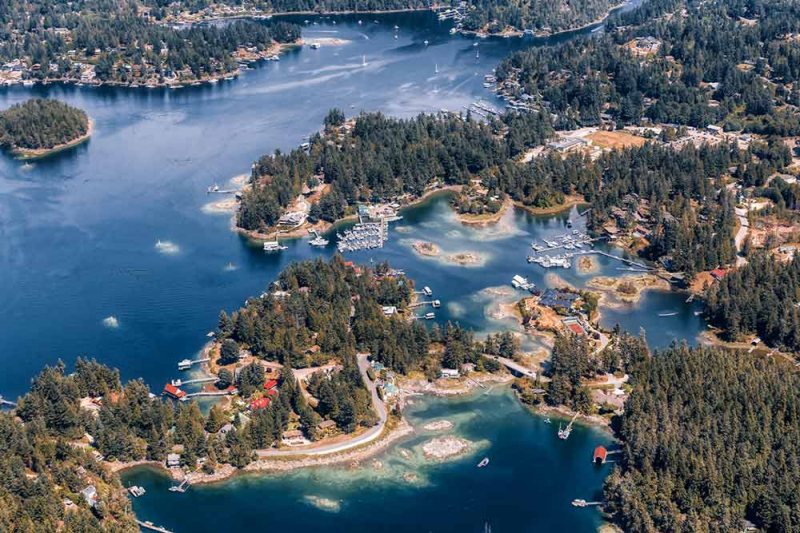
Sunshine Coast, British Columbia 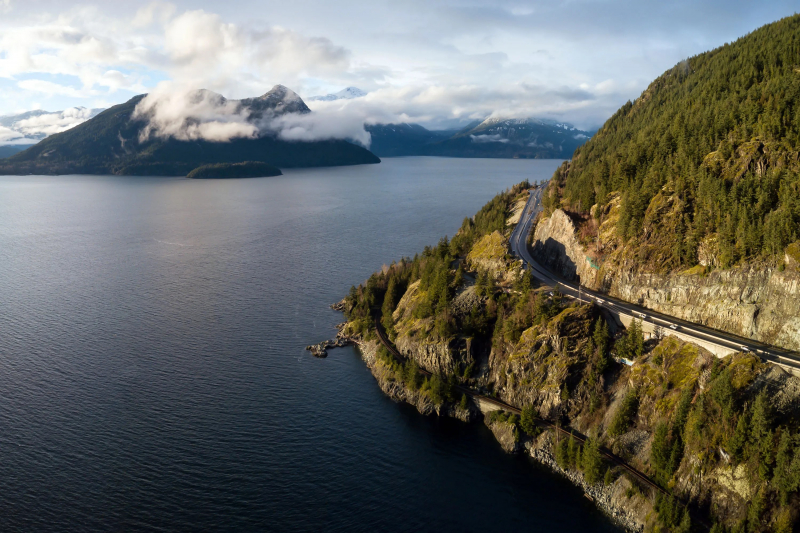
Sunshine Coast, British Columbia -
White Rock is a small city on the Pacific Ocean that is located south of Vancouver and just north of the US border. It gets 20% more sunshine than Vancouver and receives 20% less rain because it is a little farther from the Coast Mountains.
Keep an eye on the forecast in White Rock if you're in Vancouver during the winter and are wishing there would be a break from the cloudy skies and rain. Drive an hour south and spend the day soaking in the sun if the forecast predicts a sunny day. Start by visiting the White Rock Pier and taking a stroll along the White Rock Promenade. Before returning to Vancouver, have a leisurely lunch at one of the many restaurants that have ocean views. The ideal place to get some much-needed Vitamin D in the dead of winter is White Rock.
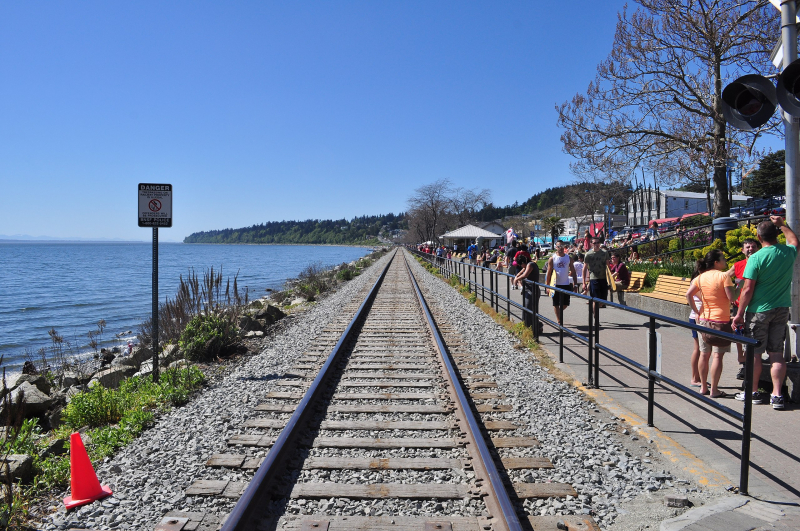
White Rock, British Columbia 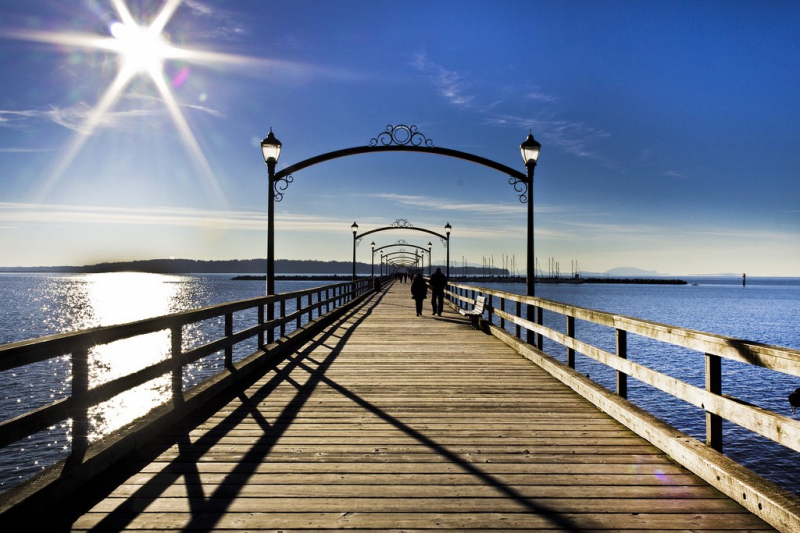
White Rock, British Columbia -
A winter day with sunshine has a way of making the cold seem a little more tolerable. Kamloops, the second sunniest city in the province, has a lot of sunny days, even in the dead of winter. Kamloops may be the spot for you if you want to get away from snowstorms or continuous rain.
The valley in which Kamloops is situated is surrounded by mountains. Although it's not exactly a tropical holiday destination, the weather in the valley is usually quite moderate. Some of Canada's best snow activities can be enjoyed there because the weather is colder and more snow up in the mountains. Skiing, snowboarding, skating, and snowshoeing are all easily accessible, but if you'd rather stay indoors, there are a variety of activities available. You can test your physical limits at the trampoline park or indoor rock climbing gym, or you can exercise your brain by trying to escape a room. You won't have time to notice the weather because you'll be so busy.
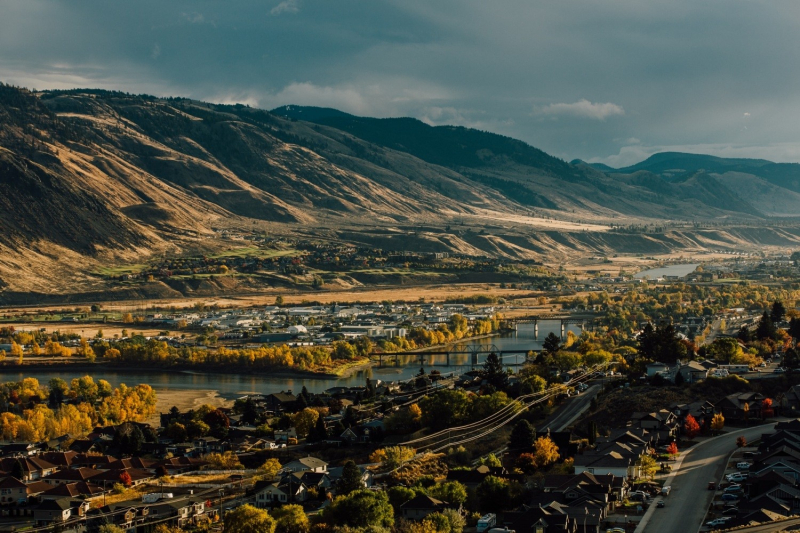
Kamloops, British Columbia 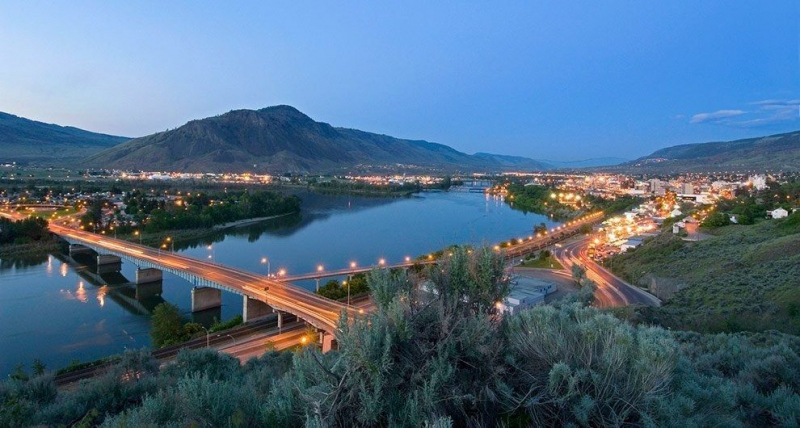
Kamloops, British Columbia -
Sooke is a fantastic small town on the wild and isolated west coast of Vancouver Island for people interested in an active outdoor lifestyle but still wanting a good selection of dining options and amenities.
This small village is the ideal place to escape both winter and urban life since it is hidden behind a headland that protects it from the worst of the weather coming in off the Juan de Fuca Strait. It is only 0.5 degrees cooler than Victoria, with an average daily high in January of 7 degrees Celsius (44.6 degrees Fahrenheit). There is a diverse population living here. People come from all different backgrounds, but they are all generally rather friendly. Huge trees surround the town, and some of Vancouver Island's best hiking is found under this protective canopy. Additionally, nearby beaches offer great spots for strolling, picnicking, and taking in the ocean views.
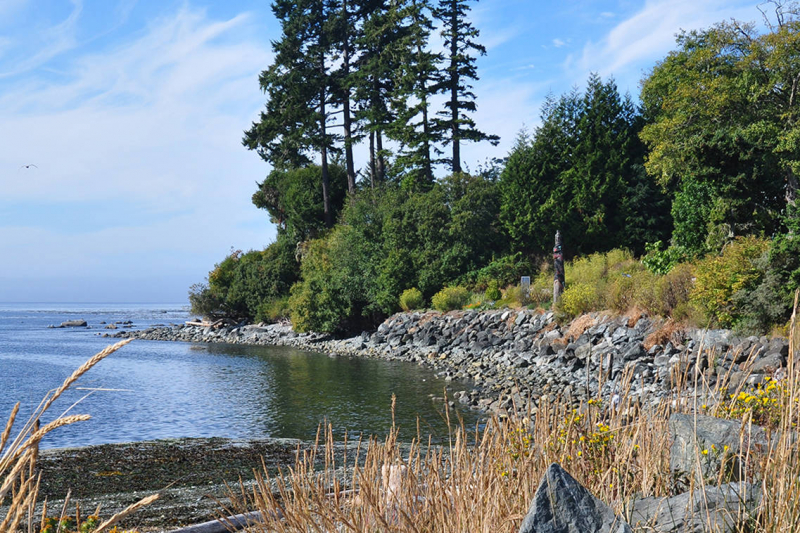
Sooke, British Columbia 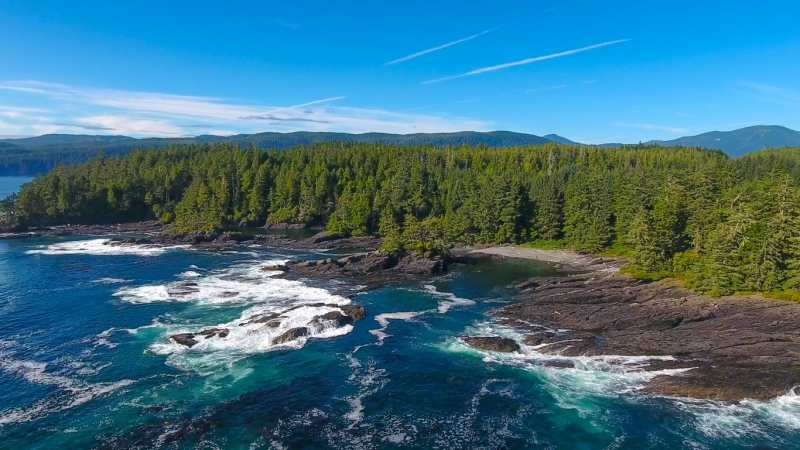
Sooke, British Columbia















